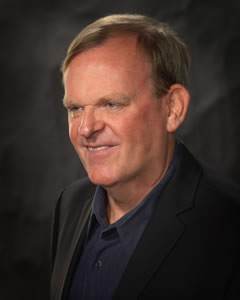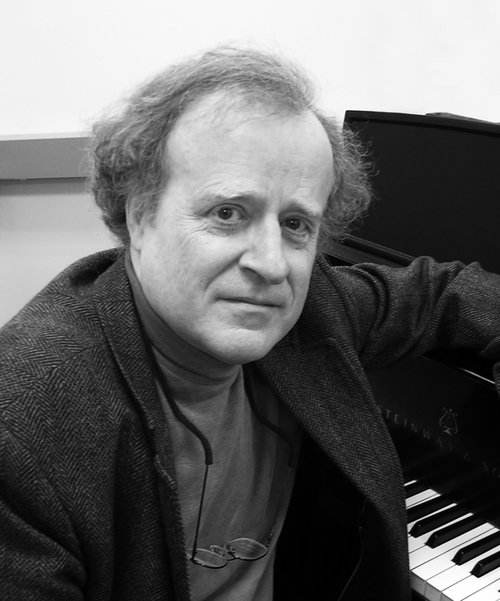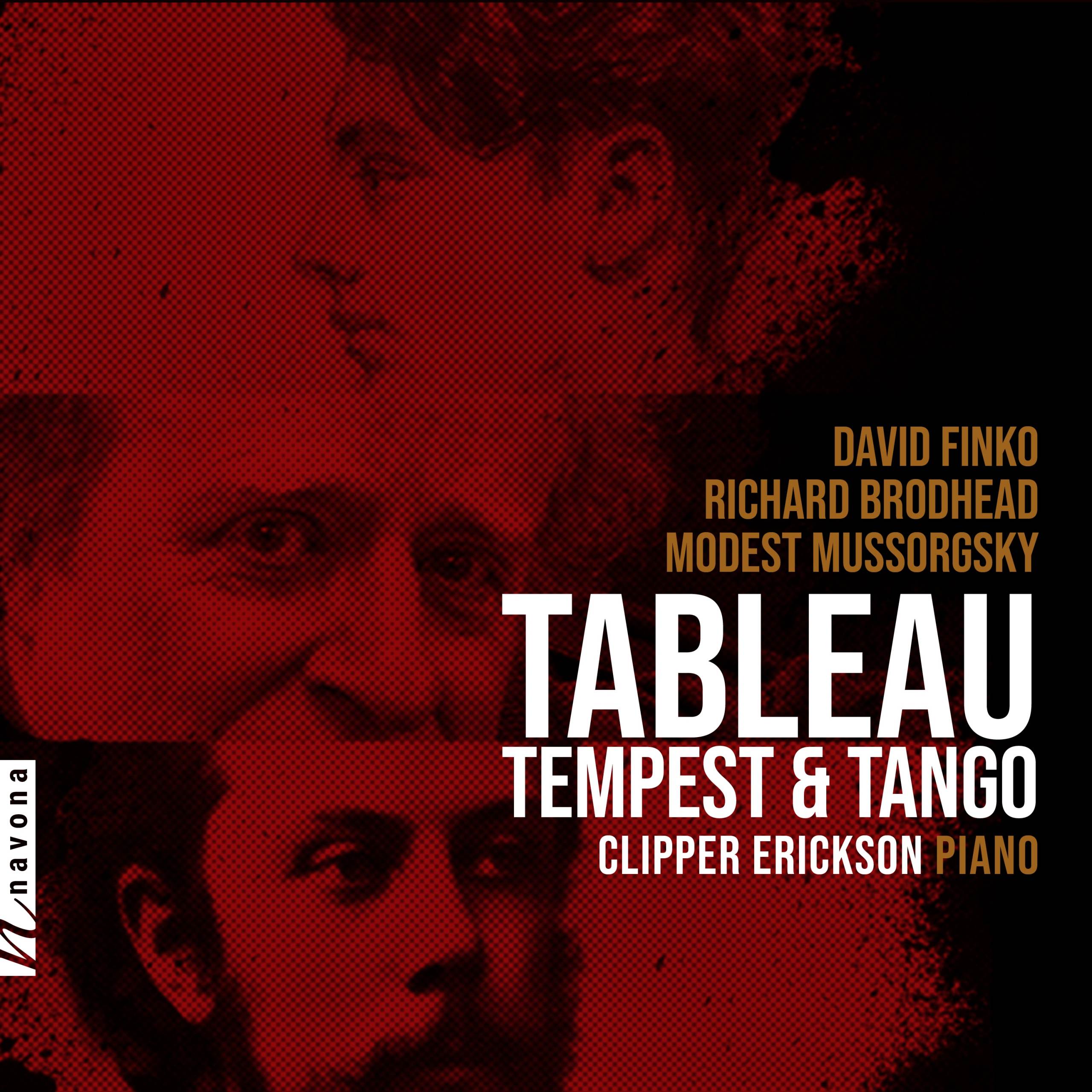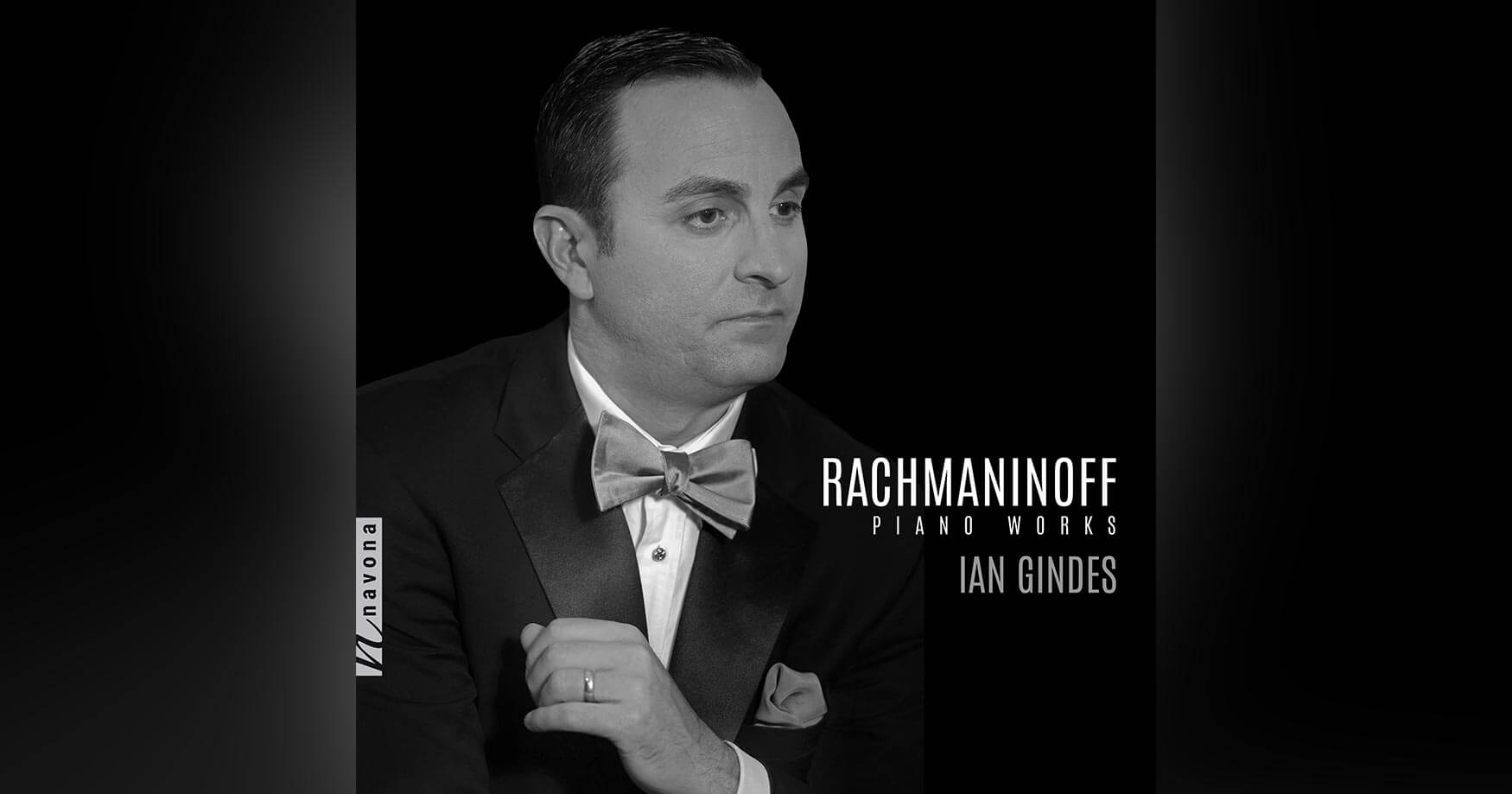The relationship between composer and performer is a unique one. Composers know the motives behind writing a piece and how they want that piece to sound, and they must find a performer who can adequately express that sound and feeling. Performers must find a composition that showcases their skills, and a composer who will let them be free in interpretation within the guidelines of general direction. TABLEAU TEMPEST & TANGO demonstrates that dance between the two sides of music, with the skills of pianist Clipper Erickson and the written genius of living composers David Finko and Richard Brodhead.
Today, we are featuring Clipper, David, and Richard in a special edition of “The Inside Story,” a blog series exploring the inner workings and personalities of our artists. In this interview, learn more about the friendship between these three artistic geniuses…
Clipper Erickson

How did this collaboration between yourself and these composers come about?
This album grew out of a couple of promises I made several years ago to two great friends of mine. I first met David Finko around 2003 (at a donut shop – sorry to say he doesn’t like Krispy Kreme much – rather Dunkin’ Donuts) and began playing his music over the next several years. In 2009, when I was going through a tough time in my personal life, he wrote me another magnificent Sonata, his third, and its transcendent message comforted me. In 2013, I visited David and promised that my next project would be to record all of his pieces that I had performed over the last several years so they would be preserved.
Likewise with Richard. In 2011 I was imagining a program of music by American composers that represented the ethnic diversity of the USA and asked Richard to write something in a Latin idiom. That resulted in the Tango Sonatina – colorful, quirky, and dramatic in turns, and I’ve greatly enjoyed performing it since. As this recording project grew, he contributed yet another work, the Sonata Notturna, the theme of which has musical letters of my name: C, E, C, S (Eb). I love the dark hues, as well as its marvelous evocation of the life of the night – a passing breeze rustling through trees, a screeching cat fight, a sudden eruption of a thunderstorm, passing away just as quickly, alternating and ending with the same meditative peace that began it.
What does this album mean to you personally?
This release is a really satisfying and special venture for me. It’s always a bit scary when you bring something new to reality – people may appreciate and like it, or not. But I feel that I’ve done something meaningful, that matters, to these great composers. I want people to know the beauty and meaning of what they write, and there’s no higher calling for me.
What are some of the challenges when interpreting a composer’s work?
Working with composers on new music is fascinating and rewarding work for me. I seek out music that has color, meaning and narrative, that I can dig into. It’s a great puzzle, really, to figure out what is in someone else’s imagination. Same for older music – of course then you can’t call the composer and ask them! How many of us have wished we could call J.S. Bach on the phone and ask what tempo he wanted on some fugue or toccata! I struggled to find the right expression for the slow movement of David’s first sonata, second-guessing myself all the way. Then he told me the story of how he conceived it hiking in beautiful, verdant hills in Lithuania and later finding out that underneath them were mass graves of Holocaust victims. Then the sound of suppressed plaintive voices alternating with the screaming horror of the massacre filled me – I knew exactly how it should sound. Watching old videos of Mikhoels as King Lear in his Yiddish theater was essential too. Then there are times when I hear something different in the music than the composer seems to have intended – I conceived the slow movement of David’s second sonata as a chorale in the Russian Orthodox tradition, rather than a hallucination. So a performer has to go with their gut instinct and hope that their vision touches the listener.
What is your guilty pleasure?
I secretly love all the sugar and butter in those Krispy Kremes – although I will be sorry later when I touch the scale! David always promises we will celebrate with a gallon of vodka when I play something of his – but he’s a big talker. Richard and I love seafood in Boston.
David Finko

How have your past experiences influenced your work as a composer?
My past has influenced me as both a person and a composer. In the summer of 1941 I fled from advancing German armies on a freight train with my mother and baby sister. The train was destroyed by German dive bombers, and I witnessed the bloody deaths of many people. I was five years old. After this, I lived in the totalitarian Soviet Union under the cruel dictatorship of Joseph Stalin. I studied submarine design and construction at the Institute of Naval Architecture in Leningrad. I worked at a top secret submarine design bureau, toured in the Arctic Ocean, and worked at shipyards. I came to the world of music through the ominous, strenuous silence of the bureau and from blinding flashes and metal thunder of shipyards.
From my childhood, I wanted to become a musician. I studied piano and violin, and received my degree in music composition from the famous Sankt Petersburg Conservatory of Music – the alma mater of Tchaikovsky, Rimsky-Korsakov, Stravinsky, Prokofiev, and Shostakovich. I moved to the USA in 1979. 24 years later, a conductor in Illinois told me about “a unique, fabulous pianist” named Clipper Erickson. I met with Clipper in Philadelphia and gave him my piano compositions. He soon contacted me to tell me that my music was authentic, original and well crafted. His performances of my music were profound, intelligent, and expressive. We understood each other both personally and musically. For example, nobody in the USA understood my piece Fantasia on a Medieval Russian Theme for its drama, cruelty, and Russian Orthodox Church mentality, but Clipper understood the music, the story behind it, and gave the most profound performance of the piece. Thus, I have written my piano sonatas 3 and 4 for him.
I often want go back in time to my desk at the submarine design bureau – it might by my longing for my youth. However I love to spend my creative time in Fredonia NY where I live with my wife of 59 years and our dog Bubba.
Richard Brodhead

What do you think is most necessary for an effective collaboration between composer and performer?
To me, the most necessary element is a shared commitment to discovering and projecting what the music wants to be. As I compose, I try to recognize what the music itself is telling me about how it wants to unfold and develop, and then I try to use my abilities to enable that to happen as effectively as possible. When a performer approaches the piece in the same way, the music is served well. In a good collaboration, the performer often sees ways of approaching a passage that are different from what the composer had been thinking – but that better project what the music is actually doing. That has certainly been the case in my wonderful collaboration with Clipper. I feel that at times he knows the music better than I, and I welcome that, because it means that the final result, the performance, will be more persuasive and more true to the music.
What does this album mean to you personally?
It is a great honor! For Clipper to have chosen to perform and now record my music, and to have my music heard alongside David Finko’s superb work (not to mention Mussorgsky’s!), means more than I can say. I have always felt that the greatest gift I can be given as a composer is a wonderful performance. And all the composers on this album have been given that gift by Clipper.

TABLEAU TEMPEST & TANGO is now available through Navona Records for streaming or purchase. Click here to explore this new album.



